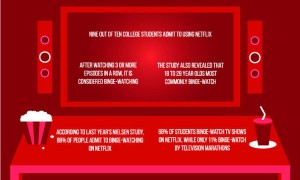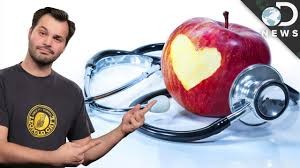Introduction:
A couple of years ago when Netflix started to move its way into the entertainment spotlight, I have to say I never got sucked into the whole craze. Until now. All people talk about now is binge watching TV shows and watching shows they never even would if there wasn’t such a convenient way to stream shows like Netflix does. I honestly never thought I would get involved either but of course I did. My friend gave me his Netflix account about a month ago and I have never been this unproductive before. Of course this new obsession is timed perfectly at a point where blogs are due, tests are posted, and assignments are at there peak. I figured that even though everyone writes about this topic, there is still information that intrigues us and data that proves why we are all so addicted to the same thing. So here is a breakdown of why Netflix is such a monster to our daily lives due to its addicting traits, as described by urbandictionary.com.
Why is it so addicting?:
You may have thought that Netflix uses color schemes, show watching convenience, or variety of shows to increase how addictive their concept is, as described in a recent huffingtonpost.com article concerning Netflix’s addictiveness. Those may be somewhat true but there is an even bigger reason why. Netflix has cracked one of the biggest marketing breakthroughs in entertainment history. The company has honed in sorting through the shows that are the most watchable and has figured out the exact moment people get addicted to a certain program. By figuring out the exact moment viewers are addicted to the show, the company can focus on which shows and moments they present to the user. Netflix uses data taken from users account information and viewing history to build a sort of viewer resume that effects when they get addicted that specific show. Smithsonianmag.com discusses this breakthrough as a sort of phenomenon is such an industry. For years people have wondered why they are addicted to this TV watching method, but know that they know they are addicted at exactly a certain moment, there is no stopping the addiction besides from not watching at all. Another hypothesis for why people are so addicted to Netflix is the theory that people are consumed in reaching a goal when they are engaged in that certain activity. In terms of TV, people generally become very consumed in that such activity, therefore becoming totally committed to that goal. This proves to be a source of addiction through data in the numbers of viewers being engaged in their program, which again was collected when looking at user data that is explained on lifehacker.co.uk. The Null Hypothesis of this situation is that when people are engaged in a certain activity, in this situation their TV program, they are more likely to finish that show and becoming addicted and watch the next, so on and so forth. The Alternate Hypothesis is that when someone loses interest in something, or doesn’t get involved, AKA not having Netflix, they will not become engaged in a goal, or become addicted to that activity.
Conclusion:
Netflix is something that most of us view as a problem. This problem is generated due to our addiction to the process of watching TV over and over as a result of factors such as accessibility, goal-commitment, and timing.
Sources:
















 http://www.espn.com/video/clip?id=10737949
http://www.espn.com/video/clip?id=10737949